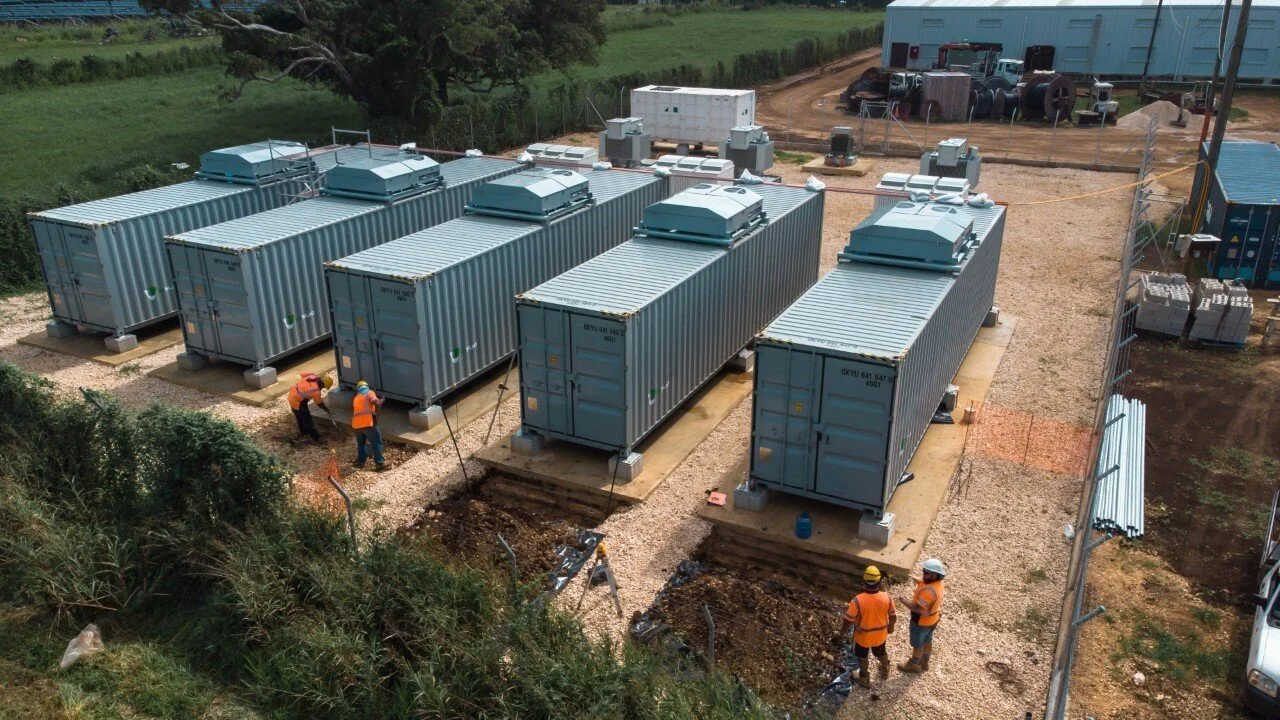In June 2019, Infratec began a two year project to design, procure and build four solar-diesel hybrid power plants on outer islands of the Solomons.
The $US6.5 million project is a 50/50 Joint Venture between Infratec and Sunergise engineering subsidiary Clay Energy, and is funded by the New Zealand Ministry of Foreign Affairs and Trade, and Solomon Power.
The four power plants will be completed by mid-2021, with the first plant expected to be operating by around July 2020.
The plants are being built in Hauhui (Malaita Province), Namugha (Makira/Ulawa Province); Sasamunga (Choiseul Province) and Vonunu (Western Province). They will provide the majority of the power on each island — using a total of 820kW of PV panels and 3.2MWh of batteries with diesel backup generators.
The project will bring clean, affordable and reliable power to more than 1000 homes as well as hospitals and health clinics, small businesses, schools and vocational training centres — the majority of which currently have no electricity supply.
That means better health services due to lighting in clinics and improved ability to store vaccines, improved education outcomes due to lighting and communication services in schools, improved security due to public lighting, increased economic activity such as small businesses generating additional income and employment opportunities during the project construction stage, and increased empowerment of women (who receive proportionally higher benefits from increased access to energy).
About 35 people will be involved in the design and construction of the four power plants, including about 15 jobs for local people in the Solomons. We have committed to employ people from the local communities for the construction phase wherever possible, with a particular focus on employment opportunities for women (with a target of at least 30% in roles such as administration, tree topping and clearing vegetation).
We have also committed to work with local communities to deliver an ongoing programme to help reduce the high incidence of sexually transmitted infection and diseases, in particular HIV and Aids — a local priority identified by the project funders.
This project is representative of the work we are very passionate about doing at Infratec — delivering positive outcomes for local people, communities and the planet.





